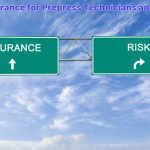
Workers Compensation insurance covers any business or organization that has full or part-time employees.
The policy covers you in case an employee sustains a work-related injury or picks up some illness directly related to his or her work.
What Are You Looking For?
Choose and Get Your Free Quote:👇️
General Liability Insurance ->
Professional Liability ->
Product Liability Insurance ->
Commercial Auto ->
Workers Compensation ->
Commercial Property ->
Other Business Insurance ->
In such a case, they can claim workers compensation benefits.
In most states, it is mandatory to have Workers Compensation insurance if a business has one or more employees.
Even if your state has not made it compulsory, you should consider Workers Compensation insurance to protect yourself in case of accidents.
It will reduce the risk of monetary loss and also it leads to a positive work environment.
Most states have legislated that employers must purchase insurance to cover their statutory obligations to workers who may have been injured or become ill as a result of any workplace exposure.
Without Workers Compensation insurance, you will have to handle these claims out of your own financial resources, and they can be substantial.
What is an ‘employee’?
Although individual states may have slightly different definitions of the term, in general it is taken to mean anyone who acts on behalf of your business or organization and receives a reward of any sort.
Not only full-time employees are covered, but part-time and casual workers on hourly or daily pay rates, travelling salespeople receiving commissions for their sales, hawkers of products and many more categories that you may not have regarded as employees may be categorized as that in terms of your state legislations, and could have a valid claim against you when they are injured or become sick while active in your commerce.
What risks does Workers Compensation insurance cover?
Workers compensation insurance provides benefits to employees who are injured or become sick from work.
It also includes disability benefits, wage losses, rehabilitation and death benefits.
Each state has different rules, so the state or states where you do business determine your relevant insurance claims.
It is your responsibility to purchase coverage from a licensed insurance company or from the state insurer in the specific states we mentioned.
The benefits cover:
- Medical expenses
- Lost salary and wages
- Regular rehabilitation
- Funeral expenses
Employees who have an accident or illness attributable to illicit drugs or excessive alcohol, or those who suffer an intentional injury, may not be entitled to claim these benefits.
State legislation can also provide for specific benefits to any workers who suffer work-related illness or injury.
Failure to meet a state’s regulations in this regard can leave you as the employer to both meet the claim out of your own pocket and also to face penalties stipulated by the states for failing to take out the required cover.
The cover is effective regardless of cause.
If it was due to the action of the employee himself or herself, to the employer, to a coworker, or even of a customer or any third-party, the employee can claim if the injury or illness is directly work-related.
However, injuries to anyone else visiting the business, or damage to their property, are covered by general liability insurance.
Where do you get Workers Compensation insurance?
In most states, employers get their Workers Compensation insurance from a commercial insurance company.
However, five states (North Dakota, Ohio, Washington, West Virginia, and Wyoming) require employers to get coverage exclusively through state-operated funds.
If you’re an employer doing business in any of these states, you cannot meet your workers’ compensation obligations with private insurance and you need to obtain coverage from the government-run monopoly state funds.
Your local insurance agents, brokers or Better Business Bureau should be the best place to start looking.
As well, a search on the internet will quickly locate the relevant companies selling Workers Compensation insurance policies around you.
What is an example of a workers compensation claim?
An employee of a major retailer was given permission to work part-time from home during the pandemic.
One day when walking to her mailbox she tripped over her neighbor’s dog and broke her arm.
Her claim was made on the basis that she needed to collect some samples of materials that the company had sent her.
The court ruled that because she was retrieving work materials, this made her home a work environment.
She was awarded compensation for the injury, covering lost pay, medical expenses and rehabilitation.
As well, the company had to keep her job available for her return.
How much Workers Compensation insurance do I need, and what does it cost?
Workers Compensation insurance is not sold with specific amounts of cover, like other insurances.
The cover is unlimited, and the cost is calculated each month, based on the payroll of your company.
Currently, workers compensation legislation in each state provides for specific benefits to any workers who suffer work-related illness or injury and charges individual premiums.
Because workers’ compensation cover is regulated by the individual states, there is no single set of rules that set out the benefits, coverage or premium calculations.
Since the rules vary not only from state to state but also may change over time, it’s a good idea to consult with the relevant authority in your state to find out which rules apply to you.
Alternatively, you can consult with experienced agents and brokers who have the necessary expertise.
Workers Compensation insurance premiums depend on a number of factors, and can vary considerably, including the state of domicile of your business, the hazard rating of the type of work individual employees do (higher risk = higher premiums) and is also calculated on the basis of the wages of the worker, since a large element of payout is the reimbursement of lost earnings,
For individual states, the calculation will vary.
Cost is normally based per $100 of payroll, so the larger the payroll bill, the higher the insurance cost will be.
Work that presents higher levels of risk will result in higher insurance costs.
For example, a computer programmer faces different risks from a truck driver.
Work that has greater change for workplace injuries, or even of death, will cost more to insure.
The National Council on Compensation Insurance (NCCI) supplies over 700 codes that classify the type of work and assign the appropriate risk level and will determine what businesses must pay for workers compensation insurance.
FAQ
How does Workers Compensation insurance differ from other liability insurance?
Workers Compensation insurance is unlike the three other liability insurances that all businesses should have – public liability, professional liability and product liability.
In the first place, it is a legal requirement to have this cover.
Secondly, there is no maximum amount of coverage.
Finally, the premiums By comparison, property or vehicle insurance has specified maximum amounts that the policy covers.
If the cost of a particular accident, theft, fire or burglary exceeds the policy limit, you have to look elsewhere for those dollars – either out of your own pocket, or from an umbrella policy that you had the foresight to take out.
Workers’ compensation insurance also has a payout limit, but only for the second part of coverage, employer’s liability.
For the first part – the part that meets the employer’s legal liability – there’s no set limit.
After the insurance comes into effect, the insurance company is responsible for all claims by employers arising out of employee compensation benefits as specified by the state.
Does having other insurance mean you don’t need Workers Compensation insurance?
Even if your employees have their own health insurance, you are the one who is responsible for their medical costs if they suffer any job-related illness or injury plus a proportion of their regular wages over the period that they are unable to work as a result of their injury or illness.
f you don’t have workers compensation insurance, you will have to pay all of this out of your own pocket along with any penalties and fines that the state authorities may levy.
When do you not need Workers Compensation Insurance?
Not every business needs to have workers’ compensation insurance.
Businesses that are not employing people such as sole proprietorships and partnerships, in other words only the owners are engaged in activity, are not required to carry Workers Compensation insurance.
Even so, some insurers do allow owners to purchase workers’ compensation insurance, and this is not a bad idea.












